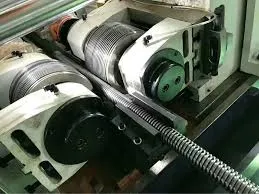
-
 Afrikaans
Afrikaans -
 Albanian
Albanian -
 Amharic
Amharic -
 Arabic
Arabic -
 Armenian
Armenian -
 Azerbaijani
Azerbaijani -
 Basque
Basque -
 Belarusian
Belarusian -
 Bengali
Bengali -
 Bosnian
Bosnian -
 Bulgarian
Bulgarian -
 Catalan
Catalan -
 Cebuano
Cebuano -
 Corsican
Corsican -
 Croatian
Croatian -
 Czech
Czech -
 Danish
Danish -
 Dutch
Dutch -
 English
English -
 Esperanto
Esperanto -
 Estonian
Estonian -
 Finnish
Finnish -
 French
French -
 Frisian
Frisian -
 Galician
Galician -
 Georgian
Georgian -
 German
German -
 Greek
Greek -
 Gujarati
Gujarati -
 Haitian Creole
Haitian Creole -
 hausa
hausa -
 hawaiian
hawaiian -
 Hebrew
Hebrew -
 Hindi
Hindi -
 Miao
Miao -
 Hungarian
Hungarian -
 Icelandic
Icelandic -
 igbo
igbo -
 Indonesian
Indonesian -
 irish
irish -
 Italian
Italian -
 Japanese
Japanese -
 Javanese
Javanese -
 Kannada
Kannada -
 kazakh
kazakh -
 Khmer
Khmer -
 Rwandese
Rwandese -
 Korean
Korean -
 Kurdish
Kurdish -
 Kyrgyz
Kyrgyz -
 Lao
Lao -
 Latin
Latin -
 Latvian
Latvian -
 Lithuanian
Lithuanian -
 Luxembourgish
Luxembourgish -
 Macedonian
Macedonian -
 Malgashi
Malgashi -
 Malay
Malay -
 Malayalam
Malayalam -
 Maltese
Maltese -
 Maori
Maori -
 Marathi
Marathi -
 Mongolian
Mongolian -
 Myanmar
Myanmar -
 Nepali
Nepali -
 Norwegian
Norwegian -
 Norwegian
Norwegian -
 Occitan
Occitan -
 Pashto
Pashto -
 Persian
Persian -
 Polish
Polish -
 Portuguese
Portuguese -
 Punjabi
Punjabi -
 Romanian
Romanian -
 Russian
Russian -
 Samoan
Samoan -
 Scottish Gaelic
Scottish Gaelic -
 Serbian
Serbian -
 Sesotho
Sesotho -
 Shona
Shona -
 Sindhi
Sindhi -
 Sinhala
Sinhala -
 Slovak
Slovak -
 Slovenian
Slovenian -
 Somali
Somali -
 Spanish
Spanish -
 Sundanese
Sundanese -
 Swahili
Swahili -
 Swedish
Swedish -
 Tagalog
Tagalog -
 Tajik
Tajik -
 Tamil
Tamil -
 Tatar
Tatar -
 Telugu
Telugu -
 Thai
Thai -
 Turkish
Turkish -
 Turkmen
Turkmen -
 Ukrainian
Ukrainian -
 Urdu
Urdu -
 Uighur
Uighur -
 Uzbek
Uzbek -
 Vietnamese
Vietnamese -
 Welsh
Welsh -
 Bantu
Bantu -
 Yiddish
Yiddish -
 Yoruba
Yoruba -
 Zulu
Zulu
Flat Die Thread Rolling Machine Producers and Their Innovative Technologies
The Advancements in Flat Die Thread Rolling Machine Manufacturing
In recent years, the manufacturing industry has witnessed significant advancements in various technologies, including the production of flat die thread rolling machines. These machines are pivotal in the metalworking sector, primarily used for creating threads on rods and bars without removing material, thus preserving the metal's integrity and enhancing its strength. This article delves into the key aspects of flat die thread rolling machine manufacturers and the innovations shaping the industry.
Understanding Flat Die Thread Rolling
Flat die thread rolling is a highly efficient process that utilizes two flat dies to deform materials into the desired thread profiles. Unlike traditional methods such as cutting, this technique offers several advantages, including increased durability of the threads, improved surface finish, and reduced waste. The ability to produce precise threads makes these machines invaluable in various applications, ranging from automotive parts to fasteners in construction.
The Role of Manufacturers
Manufacturers of flat die thread rolling machines play a crucial role in advancing this technology. They focus on designing machines that not only improve productivity but also ensure energy efficiency. Leading manufacturers invest heavily in research and development to innovate their products, enhancing features like automation, precision, and ease of operation.
1. Automation and Smart Technology
The integration of automation in thread rolling machines has transformed how manufacturers operate. Automated systems minimize human intervention, which reduces the risk of errors and increases efficiency. Smart technology, such as IoT-enabled devices, provides real-time monitoring and analytics, allowing manufacturers to assess machine performance and make data-driven decisions. These advancements not only streamline production processes but also reduce downtime and operational costs.
flat die thread rolling machine manufacturers

2. Customization and Flexibility
Another significant trend among manufacturers is the shift towards customization. As industries evolve, the demand for tailored solutions grows. Leading manufacturers now offer flexible machines that can accommodate various thread sizes and profiles, allowing for swift changes in production lines. This adaptability is critical for businesses looking to stay competitive in fast-paced markets.
3. Sustainable Practices
Sustainability is becoming increasingly vital in manufacturing. To meet global environmental standards, manufacturers of flat die thread rolling machines are implementing eco-friendly practices. This includes using materials that reduce energy consumption and implementing recycling processes for metal waste. Sustainable manufacturing not only appeals to environmentally conscious consumers but also helps businesses minimize costs and enhance their brand reputation.
Challenges and Solutions
Despite these advancements, manufacturers face several challenges. The rapid pace of technological change requires continual investment in equipment and training. Additionally, sourcing skilled labor remains a significant hurdle. To address this, manufacturers are focusing on training programs that equip their workforce with the necessary skills to operate modern machines effectively. Collaborations with educational institutions are also growing, aiming to build a pipeline of skilled workers prepared to meet industry demands.
Conclusion
Flat die thread rolling machine manufacturers are at the forefront of innovation in the manufacturing sector. Their commitment to automation, customization, and sustainability is transforming how threads are produced, enhancing efficiency and quality. As the industry continues to evolve, these manufacturers will play a critical role in shaping the future of metalworking, ensuring that they not only meet current demands but also anticipate future trends. Through continuous improvement and adaptation, the flat die thread rolling machine manufacturing sector is poised for significant growth in the coming years, reflecting the dynamic nature of the global market.
